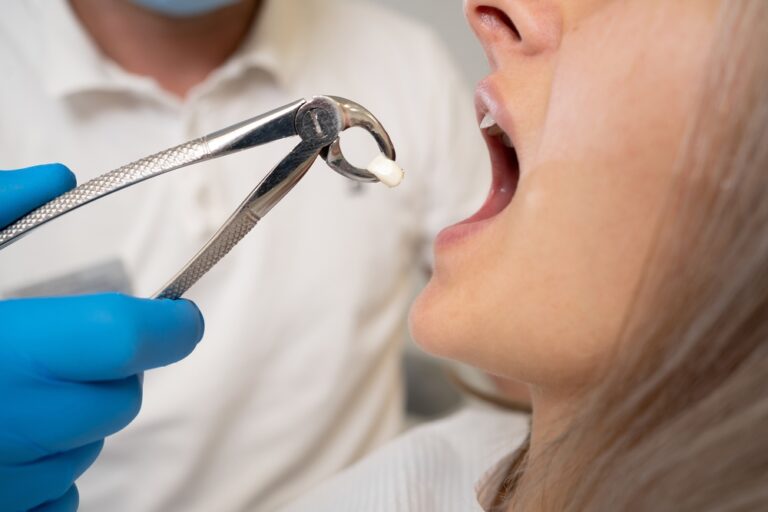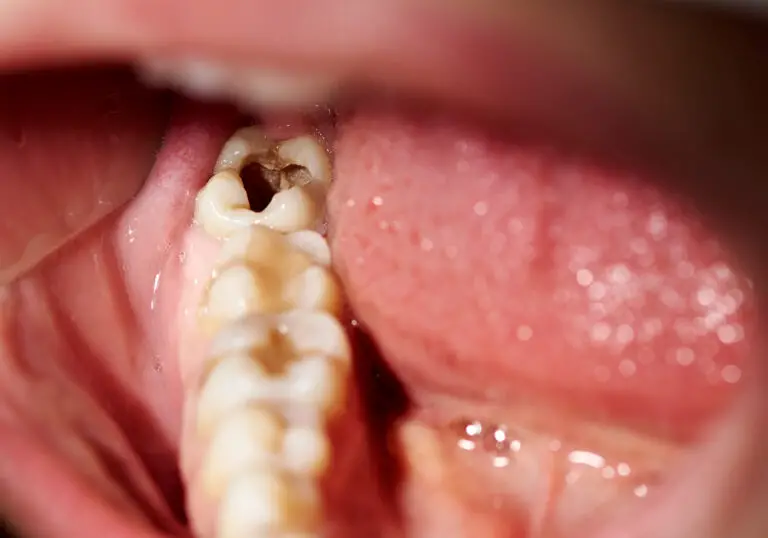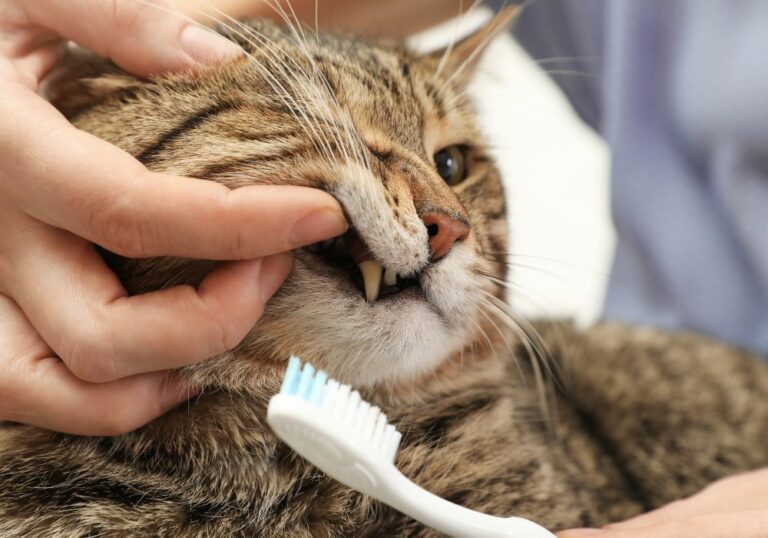Are you tired of the silver fillings or crowns in your teeth? Do you wish you could have a more natural-looking option? You may be wondering if you can get white caps for your teeth instead of silver ones. The good news is, yes, you can!
White caps, also known as white crowns or tooth-colored crowns, are a great alternative to silver crowns. They are made of materials such as porcelain or zirconia that can be colored to match the surrounding teeth. This makes them blend in seamlessly with your natural teeth, giving you a more aesthetically pleasing smile. Plus, they require less removal of tooth structure than silver crowns, making them a more conservative option.
Understanding Dental White Caps
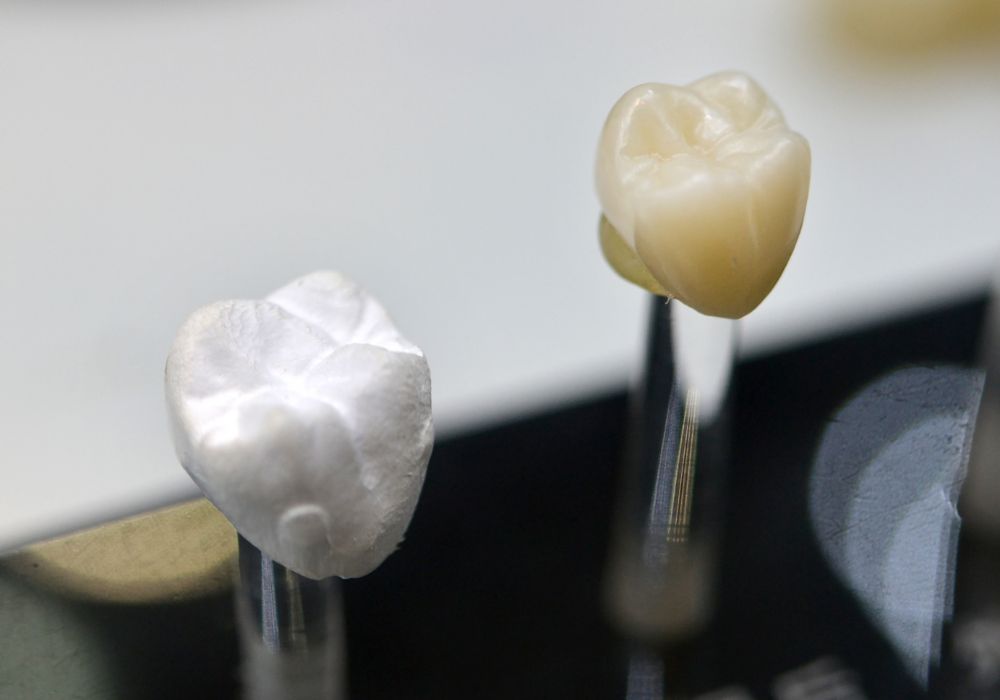
If you or your child has dental issues that require more than just a filling, your dentist may suggest getting a white cap. White caps, also known as crowns, are a common dental procedure for children and adults. They are used to cover a damaged or decayed tooth to restore its shape and function.
White caps are made from different materials, including metal, resin, porcelain, and zirconia. Zirconia crowns are a popular choice for children’s dental work because they provide an aesthetically pleasing option that closely resembles natural teeth while still offering durability and functionality.
One of the benefits of white caps is that they can be used to restore the whole tooth, unlike dental fillings, which only repair a portion of the tooth. White caps can also help prevent further damage to the tooth and improve its appearance.
When getting a white cap, your dentist will first prepare the tooth by removing any decay or damage. They will then take an impression of the tooth to create a custom-fit crown. While the permanent crown is being made, a temporary crown will be placed on the tooth to protect it.
It’s important to note that white caps are not a one-size-fits-all solution. Your dentist will evaluate your specific dental needs and recommend the best type of crown for you or your child. They will also discuss the benefits and risks of the procedure and provide aftercare instructions to ensure the crown lasts as long as possible.
Overall, white caps can be a great option for restoring damaged or decayed teeth. Talk to your dentist to see if this procedure is right for you or your child.
Why Choose White Caps Over Silver?
If you’re considering getting caps for your teeth, you may be wondering whether to go for silver or white caps. While silver caps have been around for a long time, white caps are becoming increasingly popular. Here are some reasons why you might choose white caps over silver:
Aesthetics
One of the main reasons people choose white caps over silver is for cosmetic reasons. White caps are made from a composite material that can be matched to the color of your teeth, making them virtually indistinguishable from your natural teeth. This can be especially important if you need caps for teeth that are visible when you smile or speak.
Safety
While silver caps are made from a mixture of metals, including mercury, composite caps are made from non-toxic materials. This can be especially important if you have concerns about the safety of silver caps.
Durability
While silver caps are known for their durability, composite caps are also very strong and can last for many years with proper care. In fact, composite caps may be less likely to crack or break than silver caps.
Less Invasive
To place silver caps, a significant amount of your tooth structure needs to be removed. Composite caps, on the other hand, require less tooth structure removal, making them a less invasive option.
Cost
While the cost of caps can vary depending on a number of factors, including the material used, composite caps are generally less expensive than silver caps. This can be especially important if you’re on a tight budget.
Overall, there are many reasons why you might choose white caps over silver. Whether you’re looking for a more natural-looking option, a safer option, or a less invasive option, composite caps can be a great choice.
Procedure for Getting White Caps
If you’re considering getting white caps for your teeth, it’s important to understand the procedure involved. Here’s what you can expect:
Consultation
The first step is to schedule a consultation with a dentist who specializes in cosmetic dentistry. During this appointment, the dentist will examine your teeth and discuss your goals for the procedure. They will also take X-rays and impressions of your teeth to ensure a proper fit for the caps.
Preparation
Before the caps can be placed, the dentist will need to prepare your teeth. This involves removing a small amount of enamel from the tooth to make room for the cap. This can be done under local anesthesia to minimize discomfort.
Impressions
Once your teeth are prepared, the dentist will take impressions of your teeth to create custom-fitted caps. These impressions will be sent to a dental laboratory where the caps will be created.
Temporary Caps
While you wait for your permanent caps to be created, the dentist will place temporary caps over your teeth. These caps are made from resin and are designed to protect your teeth until your permanent caps are ready.
Placement
Once your permanent caps are ready, you will return to the dentist’s office to have them placed. The dentist will remove the temporary caps and place the permanent caps over your teeth. They will ensure a proper fit and make any necessary adjustments.
Follow-Up
After the caps are placed, the dentist will schedule a follow-up appointment to ensure they are functioning properly. They may also provide instructions for care and maintenance of your new caps.
Overall, getting white caps for your teeth can be a great way to improve your smile and boost your confidence. With the right dentist and proper care, your new caps can last for many years to come.
Benefits of White Caps for Teeth
If you’re looking for a more aesthetically pleasing option for dental work, white caps can be a great choice. Here are some benefits of choosing white caps for your teeth:
- Natural Appearance: White caps closely resemble natural teeth, providing a natural-looking option that can boost confidence and self-esteem. Unlike silver caps, white caps blend in with the rest of your teeth, making them less noticeable.
- Biocompatibility: White caps are made from biocompatible materials that are safe for use in the human body. They are free from harmful chemicals and metals, making them a safer choice for dental work.
- Durability: White caps are durable and long-lasting, making them a great investment for your dental health. With proper care, they can last for many years without needing to be replaced.
- Less Sensitivity: White caps are less likely to cause tooth sensitivity than silver caps. They are also less likely to cause gum inflammation or irritation.
- Versatility: White caps can be used to restore teeth that are decayed, broken, or worn down. They can also be used to cover dental implants and root canal-treated teeth.
Overall, white caps are a great choice for anyone looking for a more natural-looking and biocompatible option for dental work. They offer several benefits over traditional silver caps, including a more natural appearance, increased durability, and less sensitivity.
Potential Risks and Downsides
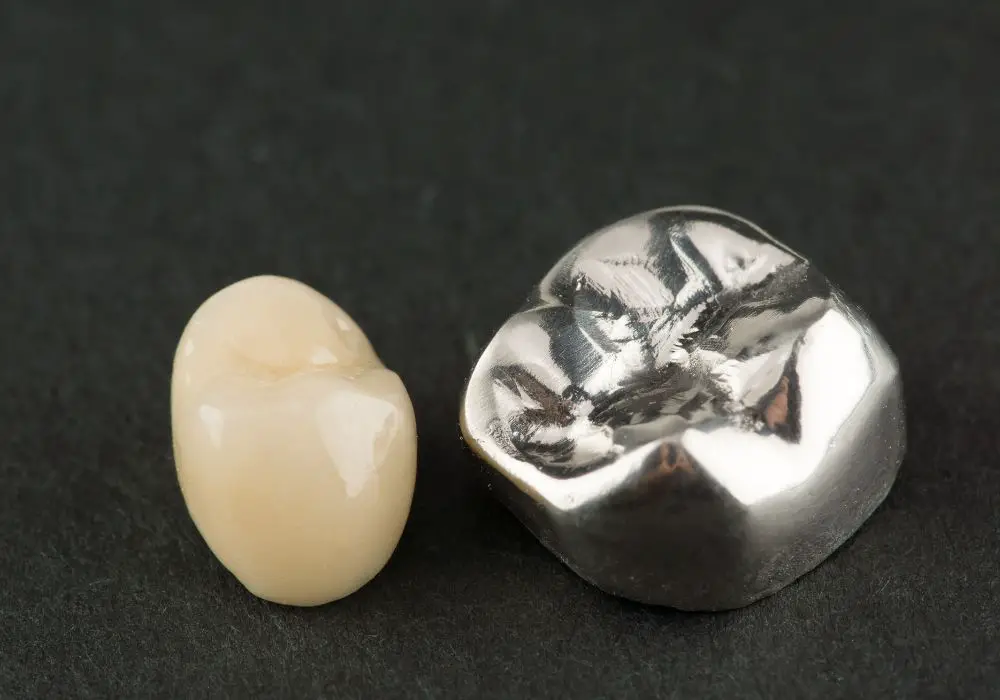
While white caps for teeth can be a great option for those looking to improve their smile, there are some potential risks and downsides to consider before making a decision.
Tooth Sensitivity
One of the most common side effects of getting white caps for teeth is tooth sensitivity. This is because the process of getting caps involves removing a small amount of your tooth enamel to make room for the cap. This can expose the sensitive inner layer of your tooth, causing discomfort when eating or drinking hot or cold foods and beverages. However, this sensitivity is usually temporary and should subside within a few weeks.
Cost
Another potential downside of getting white caps for teeth is the cost. While the price can vary depending on the type of cap and the dentist you choose, it is generally more expensive than getting silver fillings. Additionally, many insurance plans do not cover the cost of cosmetic dental procedures, so you may need to pay for the entire procedure out of pocket.
Risk of Damage
While white caps for teeth are durable and long-lasting, there is still a risk of damage over time. This can include cracking, chipping, or even falling off completely. It is important to take good care of your teeth and avoid biting down on hard objects to minimize this risk.
Allergic Reactions
In rare cases, some people may have an allergic reaction to the materials used in white caps for teeth. This can cause symptoms such as swelling, redness, and itching in the mouth. If you experience any of these symptoms after getting white caps, it is important to contact your dentist right away.
Overall, while there are some potential risks and downsides to getting white caps for teeth, many people find that the benefits outweigh the risks. It is important to talk to your dentist and weigh all of your options before making a decision.
Maintenance of White Caps
If you have opted for white caps instead of silver ones, it is important to maintain them properly to ensure their longevity and effectiveness. Here are some tips to help you keep your white caps in good condition:
Good Oral Hygiene
Good oral hygiene is essential for maintaining your white caps. Brush your teeth twice a day with a soft-bristled toothbrush and fluoride toothpaste. Floss at least once a day to remove plaque and food particles from between your teeth. Avoid using abrasive toothpaste or hard-bristled toothbrushes, as they can damage your white caps.
Avoid Hard and Sticky Foods
Avoid hard and sticky foods that can damage or dislodge your white caps. Chewing on ice, hard candy, or popcorn kernels can cause your white caps to crack or chip. Sticky foods like caramel and chewing gum can pull your white caps off your teeth.
Regular Dental Checkups
Regular dental checkups are important for maintaining your white caps. Your dentist will check your white caps for any signs of damage or wear and tear. They will also clean your teeth to remove any plaque or tartar buildup that can cause decay or gum disease.
Avoid Teeth Grinding
Teeth grinding can cause your white caps to wear down and become damaged. If you grind your teeth at night, talk to your dentist about getting a custom-fitted mouthguard to protect your teeth and white caps.
Avoid Staining Agents
Staining agents like coffee, tea, and red wine can discolor your white caps over time. Avoid consuming these beverages or rinse your mouth with water after drinking them to minimize staining. If your white caps do become discolored, talk to your dentist about getting them professionally cleaned or whitened.
By following these simple tips, you can keep your white caps in good condition and enjoy a healthy, beautiful smile for years to come.
Cost and Insurance Considerations
When it comes to getting white caps for teeth instead of silver, cost and insurance considerations are important factors to keep in mind. Here are a few things to consider:
Cost
The cost of getting white caps for teeth can vary depending on several factors, including the material used, the size of the tooth, and the location of the dental practice. On average, the cost of a single white cap can range from $800 to $3,000. Here are some estimated costs for different materials:
- Porcelain: $800-$3,000 per tooth
- Zirconia: $1,000-$2,500 per tooth
- Composite resin: $300-$1,500 per tooth
It’s important to note that these are just estimates, and the actual cost may be higher or lower depending on your specific situation.
Insurance
Dental insurance may cover some or all of the cost of getting white caps for teeth, depending on your plan and the reason for the treatment. For example, if the white caps are being used to repair damage caused by an accident or injury, your insurance may cover a portion of the cost.
However, if the white caps are being used for purely cosmetic reasons, your insurance may not cover any of the cost. It’s important to check with your insurance provider to understand your coverage and any out-of-pocket costs you may be responsible for.
Keep in mind that even if your insurance does cover the cost of white caps, there may be limitations or restrictions on the type of material that can be used. For example, some insurance plans may only cover porcelain or ceramic white caps, while others may not cover composite resin.
In summary, the cost and insurance considerations for getting white caps for teeth can vary depending on several factors. It’s important to do your research and talk to your dentist and insurance provider to understand your options and any potential costs.
Alternatives to White Caps

While white caps, also known as zirconia crowns, are a popular alternative to silver caps for children’s dental work, there are other options available as well. Here are some of the alternatives to white caps:
Stainless Steel Crowns
Stainless steel crowns have been the traditional choice for children’s teeth for many years, and they are still a viable option. They are strong and durable, and they can be used on both front and back teeth. However, they are not as aesthetically pleasing as white caps.
Composite Resin Crowns
Composite resin crowns are made of a tooth-colored material that can be matched to the color of your child’s teeth. They are less durable than stainless steel or zirconia crowns, but they are a good option for front teeth that are visible when your child smiles.
Porcelain Crowns
Porcelain crowns are another option for front teeth. They are strong and durable, and they can be matched to the color of your child’s teeth. However, they are more expensive than other types of crowns.
Gold Crowns
Gold crowns are a durable and long-lasting option for back teeth. They are not as aesthetically pleasing as other types of crowns, but they are a good choice for children who grind their teeth or have other issues that require a strong crown.
When choosing a crown for your child, it’s important to talk to your dentist about the pros and cons of each type. Your dentist can help you make an informed decision based on your child’s unique needs and circumstances.
Frequently Asked Questions
Can you get white crowns instead of silver for front teeth?
Yes, you can get white crowns instead of silver for front teeth. White crowns are a popular choice for those who want a more natural-looking smile. They are made of materials that mimic the appearance of natural teeth, such as porcelain or ceramic.
What are the benefits of white crowns over silver crowns?
White crowns have several benefits over silver crowns. They are more aesthetically pleasing, as they blend in better with the surrounding teeth. They are also less likely to cause allergic reactions or sensitivity. Additionally, white crowns are more durable than silver crowns and can last for many years with proper care.
Are white crowns more expensive than silver crowns?
Yes, white crowns are generally more expensive than silver crowns. However, the cost can vary depending on the material used and the complexity of the procedure. It is important to discuss the cost with your dentist before deciding on a treatment plan.
What are zirconia dental crowns and are they a good alternative to silver crowns?
Zirconia dental crowns are a type of white crown that is made from a strong, durable material called zirconium oxide. They are a good alternative to silver crowns because they are biocompatible, meaning they are less likely to cause allergic reactions or sensitivity. Zirconia crowns are also highly resistant to wear and can last for many years.
Can silver crowns be replaced with white crowns?
Yes, silver crowns can be replaced with white crowns. Your dentist can remove the silver crown and replace it with a white crown that matches the color of your surrounding teeth. This can improve the appearance of your smile and provide a more natural-looking restoration.
Is there a better alternative to silver caps for baby teeth?
White crowns are often a better alternative to silver caps for baby teeth. They are more aesthetically pleasing and can help preserve the natural appearance of your child’s smile. Additionally, white crowns are less likely to cause allergic reactions or sensitivity, making them a safer option for children.




